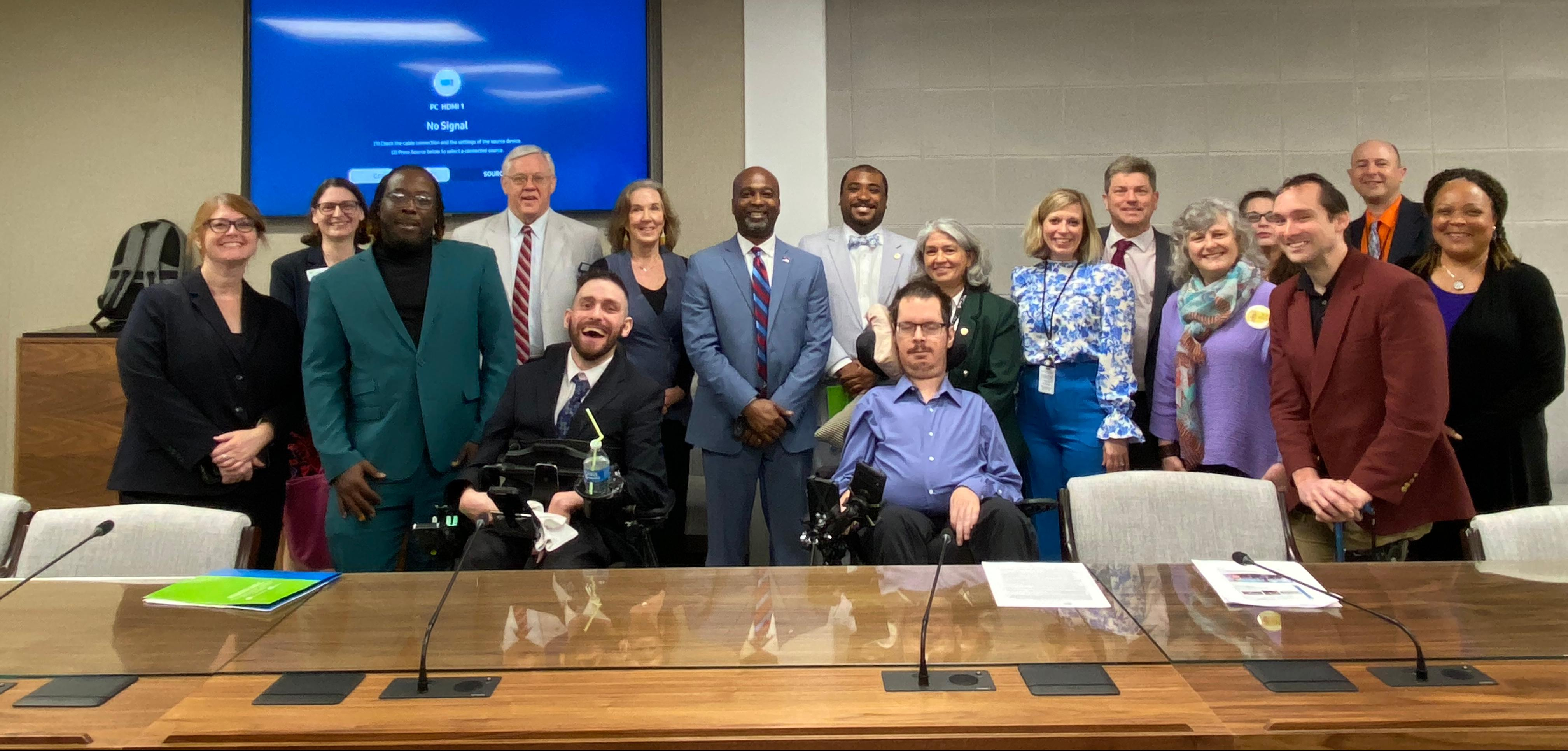A Year of Advocacy
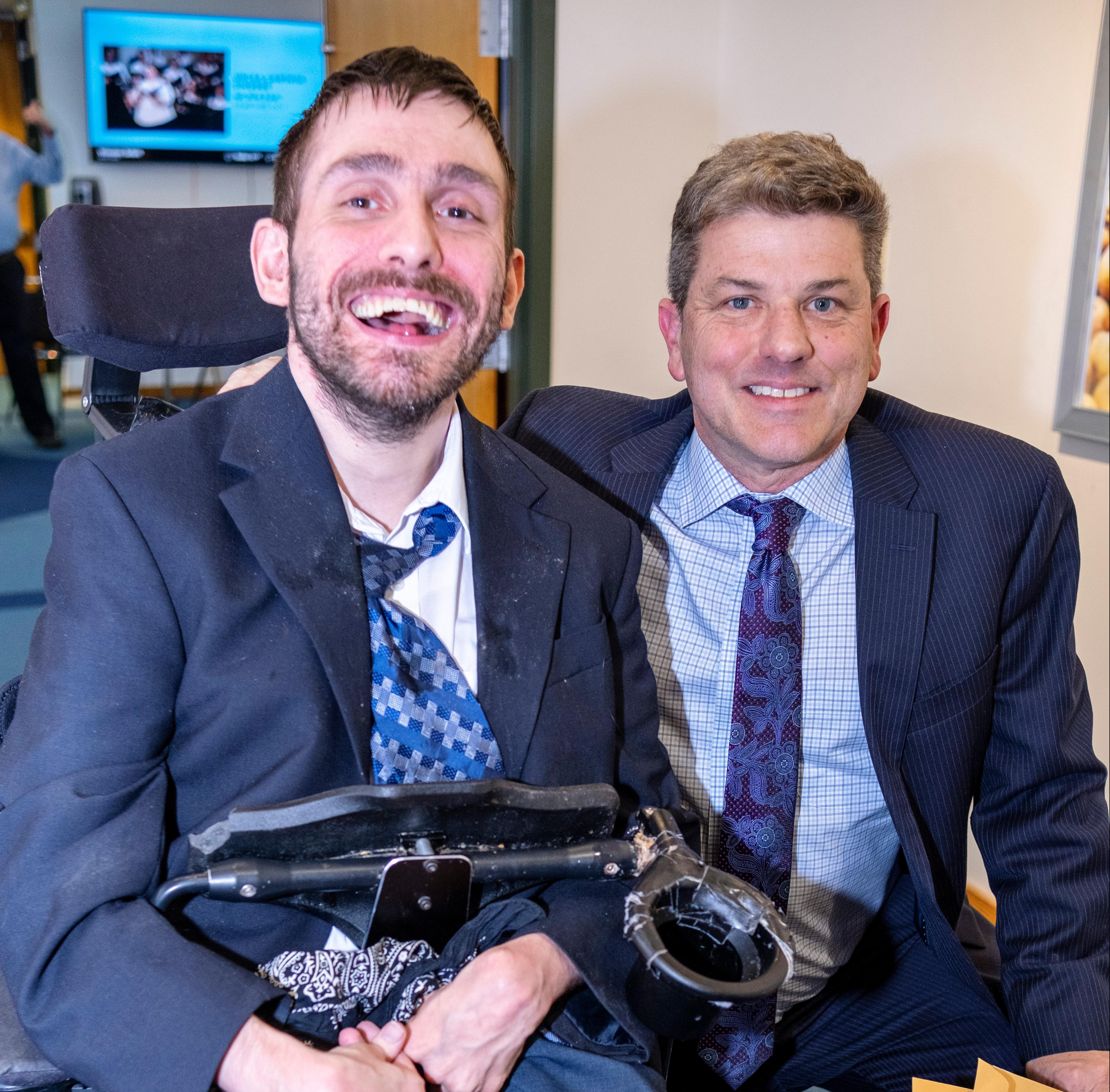 Bryan Dooley, Chairperson (left); Talley Wells, Executive Director (right)
Bryan Dooley, Chairperson (left); Talley Wells, Executive Director (right)
Message from NCCDD Council Chair and the Executive Director
The North Carolina Council on Developmental Disabilities (NCCDD) made FY 2023 a year of advocacy! This year, the Council focused on the waiting list and the Direct Support Professional (DSP) workforce shortage. We made significant progress with the state increasing funding for DSP rates and launching 1915(i) Medicaid, which will provide new community living supports and employment services. At the same time, there are still thousands of people in our community who are without services due to the waiting list and the workforce shortage. Read more from Bryan Dooley and Talley Wells
Awards Recognize Influential Advocates and Leaders
Each year, NCCDD honors the significant contributions made by advocates who are actively working to change attitudes and support greater choices for a more inclusive North Carolina. The Council established its Advocacy and Leadership Awards to recognize leaders in the I/DD community who help build a better North Carolina for all people with I/DD. The award recipients for 2022 were:
Kerri Eaker, Asheville, NC
Jack B. Hefner Memorial Award
Matt Herr, Raleigh, NC
Helen C. “Holly” Riddle Distinguished Service Award
R.V. Kuser, Winston-Salem, NC
North Carolina Leadership Achievement Award
Learn more about the 2022 recipients by watching the videos below or reading the NCCDD announcement from 2022.
Statewide Initiatives Make a Difference
This was the second year of NCCDD’s 2022-2026 Five-Year State Plan. The State Plan aims to advance the Developmental Disabilities Assistance and Bill of Rights Act of 2000 (DD Act) through its requirements of self-determination, independence, productivity, integration, and inclusion for individuals with intellectual I/DD and their families. The plan’s goals, to be achieved by 2026, include: 1) Increase financial security through asset development; 2) Increase community living; and, 3) Increase advocacy.
Read highlights of several of our initiatives that are already making a difference for North Carolinians with I/DD:
- Success in Helping Prisoners with Disabilities Find Sustainable, Meaningful Employment Upon Release;
- Expanding Competitive Integrated Employment (CIE);
- Advocating for Supported Decision-Making: Rethinking Guardianship;
- Unmet: Film Debuts throughout the State; and
- Discussion Series Prepares Self-Advocates to Influence Change.
Council in the Community
Throughout the year, NCCDD's members and staff have been out and about across the State to learn more about and advocate for the I/DD community.
For example, in March, members and staff met with North Carolina General Assembly legislators to educate them about issues that are important to the I/DD community.
And in August, over 300 people attended a statewide hybrid Town Hall Meeting held by NCCDD to discuss issues impacting people with I/DD living in North Carolina.
Read more about the Council's impact in the community.
Meet our Council Members, Staff and Partners
Council Members
The North Carolina Council on Developmental Disabilities (NCCDD), a 40-member body appointed by the Governor, is made up of:
- People with intellectual and/or other developmental disabilities (I/DD)
- Parent/Family member/Guardian
- Representatives of State agencies
- State legislators
- Representatives from Disability Rights NC and the Carolina Institute for Developmental Disabilities
- Provider and Local Management Entities/Managed Care Organization representatives (LME/MCO)
The Council represents all of North Carolina and is responsible for carrying out the provisions of the Developmental Disabilities Assistance and Bill of Rights Act (DD Act) and making sure that the Council is a member-driven, effective, efficient, and accountable organization. Serving up to two four-year terms, the membership is composed of 60 percent of people with intellectual or other developmental disabilities (I/DD) or family members, and the remainder with representatives from state agencies, nonprofit and professional organizations. The Council guides all initiatives and contracts. See our current list of Council Members.
Council Member Spotlight: Brendon Hildreth
Even before being appointed to the Council, Brendon Hildreth has been an impactful advocate across the state by finding success through opportunities. Read about Brendon's journey to employment.
Council Staff
NCCDD’s staff brings deep experience in human services and the field of I/DD. They work closely with Council members, state agencies and nonprofits to make a difference on individual, local, state and national levels to help better the lives of communities throughout North Carolina. Meet NCCDD's Staff.
NC DD Network Partners
Carolina Institute for Developmental Disabilities (CIDD): The Carolina Institute for Developmental Disabilities is a comprehensive program for services, research and training relevant to individuals with developmental disabilities and their families.
Disability Rights North Carolina: Disability Rights NC is a nonprofit organization whose team of attorneys, advocates, paralegals and support staff provide advocacy and legal services for people with disabilities across North Carolina. It is the state's federally mandated protection and advocacy system.
Federal Fiscal Year (FFY) Budget for 2022 - 2023
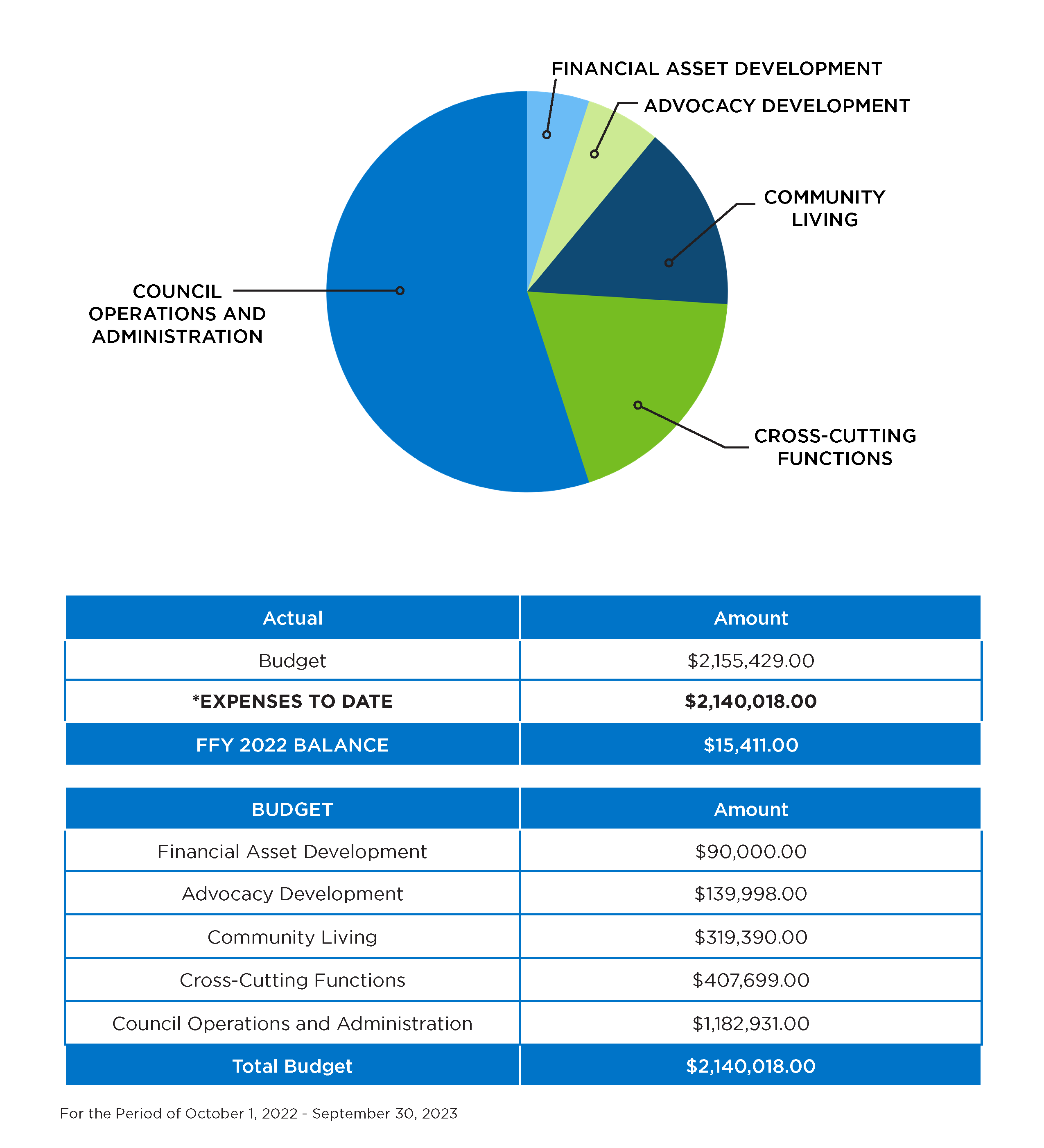
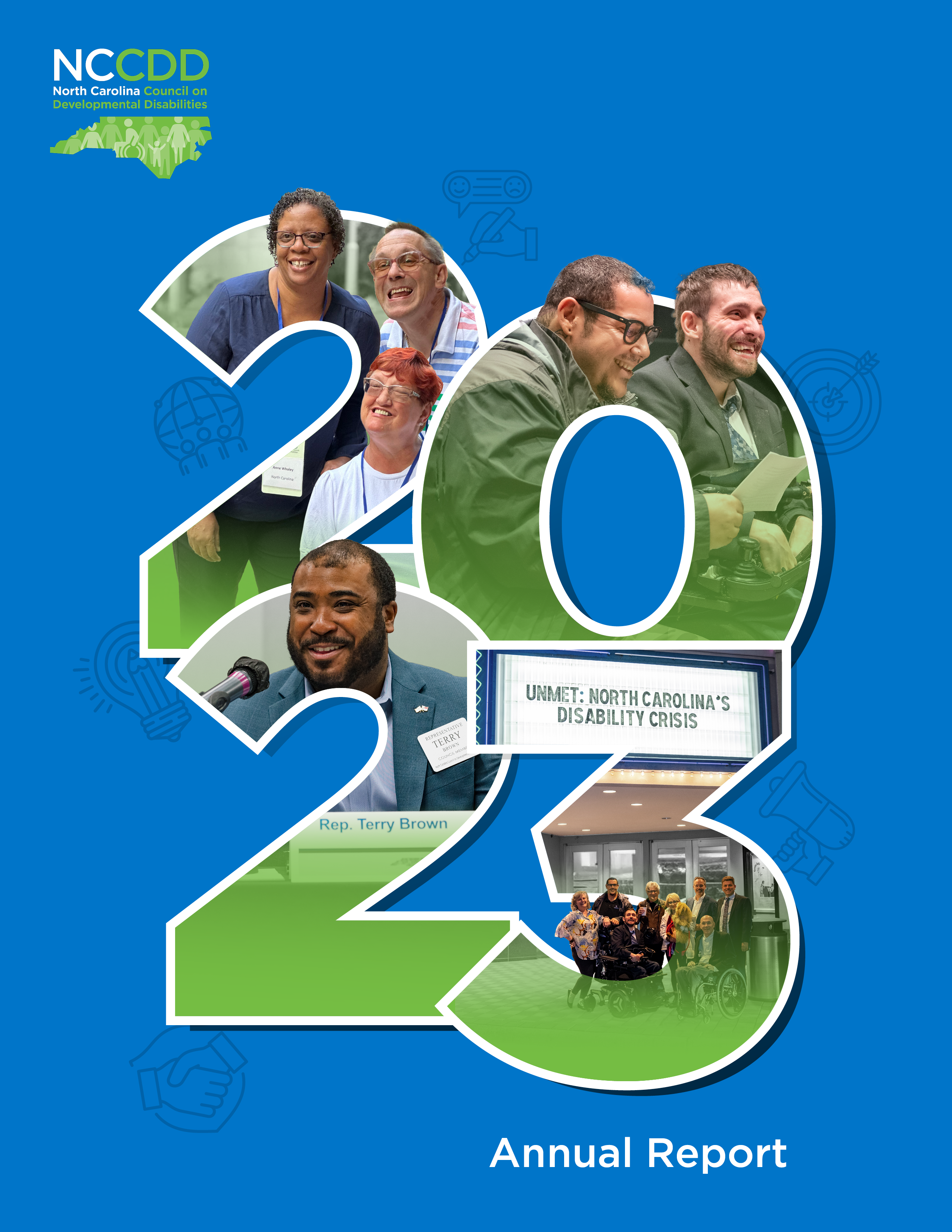 |
English Version Download the pdf: |
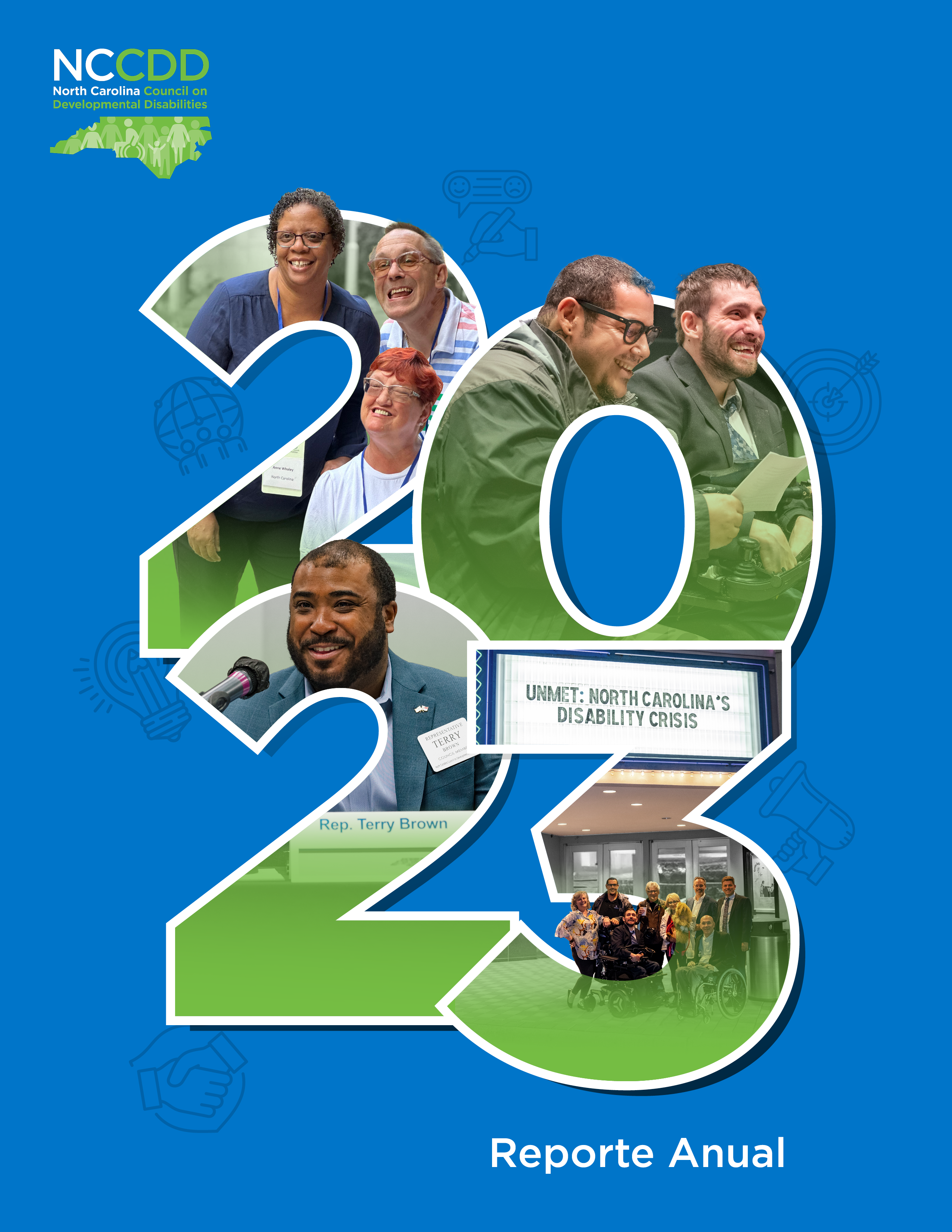 |
Spanish Version Download the pdf: |

